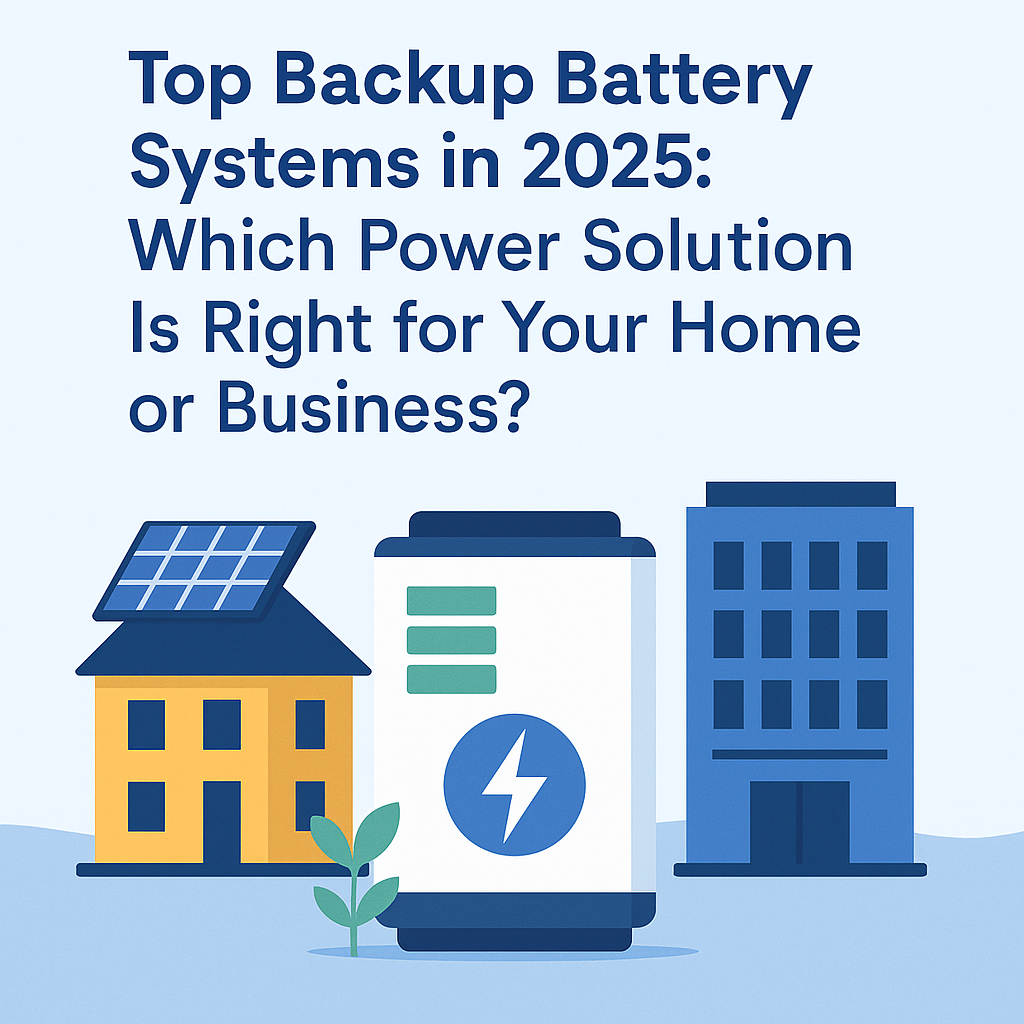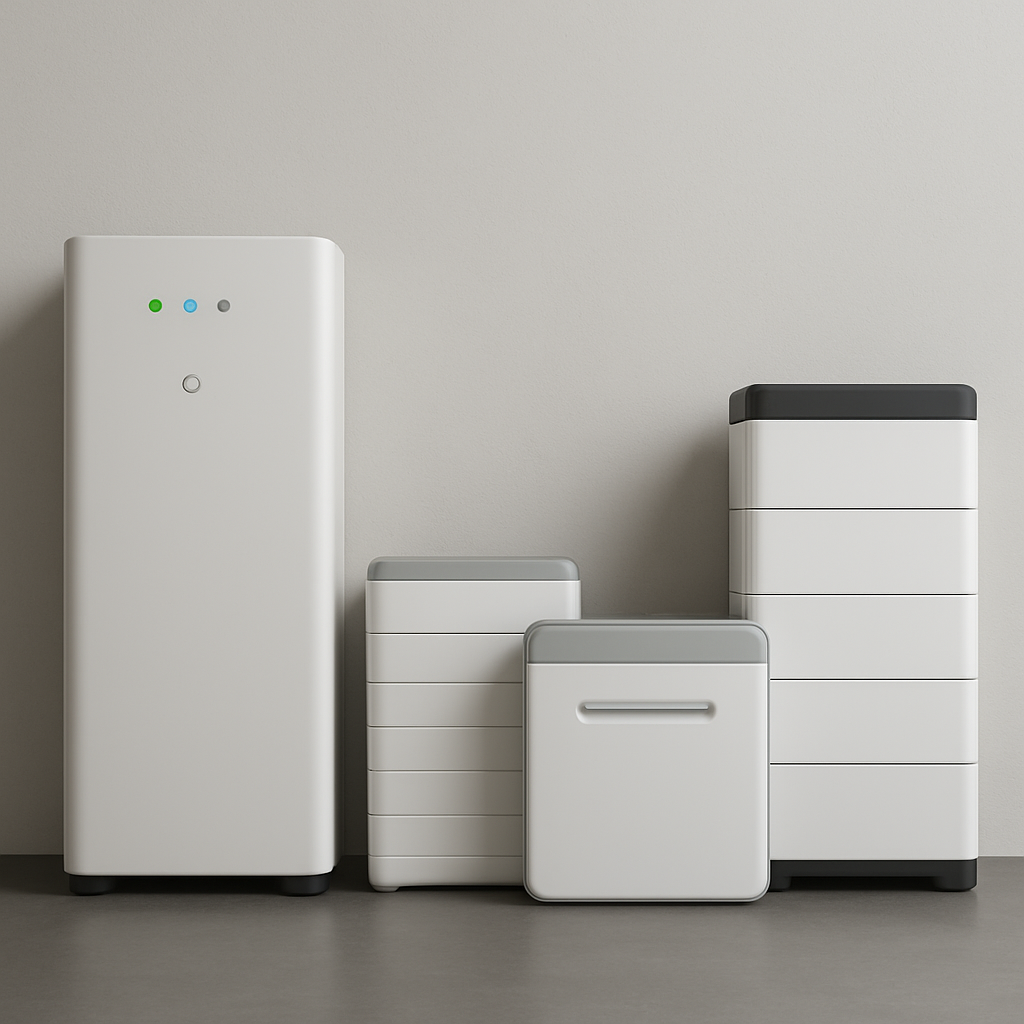With power outages becoming more frequent and electric costs on the rise, choosing a reliable backup battery system is no longer optional—it’s essential. But what makes a system truly dependable in 2025, and how do you find the right fit for your needs?
Discover the best backup battery systems in 2025 to keep your home or business powered during outages—no matter what comes your way.
To choose the right battery backup solution, consider power needs, energy storage capacity, installation space, and energy-saving performance. Residential users often prioritize compact designs and green energy integration. Businesses, on the other hand, need high-capacity systems with scalable electric power and clean energy features.
Stay with us—we’re just getting to the powerful stuff.
Table of Contents
What Are Backup Battery Systems and How Do They Work?
Backup battery systems store electric power for use when the grid fails. These systems usually draw power from the grid or from renewable energy sources, such as solar panels. When activated during an outage, they supply clean, stable energy. This process supports energy conservation and promotes long-term use of green energy in both homes and businesses.
Why 2025 Is a Pivotal Year for Backup Power Solutions
In 2025, backup battery systems are advancing rapidly thanks to new energy-saving technologies. Stricter regulations, rising energy costs, and environmental goals are driving demand for cleaner, more efficient solutions. Users now seek systems that combine renewable energy integration with smart energy management—making green power more accessible and cost-effective.

Top 5 Backup Battery Systems in 2025: Features, Specs, and Prices
While product features vary, top-performing battery systems in 2025 generally include:
- Advanced lithium battery packs with 8–20 kWh storage capacity
- Smart management systems for energy saving and usage tracking
- Scalable modules that adapt to different electric power needs
- Support for solar or wind energy inputs
- Pricing ranges from $6,000 to $12,000, depending on system size and features
These battery backup options support both residential and commercial use, aligning with clean energy goals.
Home vs. Business Backup Battery Needs: What to Consider
Homes often require moderate-capacity systems with a focus on power saving and basic load coverage—lighting, refrigeration, and network devices. Businesses typically demand higher-capacity systems that ensure uninterrupted electric power for operations, security, and data infrastructure. Choosing the right battery pack is key to long-term energy conservation and cost control.

Are Backup Battery Systems Worth the Investment?(FAQ)
Absolutely. Backup battery systems provide reliable electric power during outages, reduce dependence on the grid, and support energy saving. Over time, they lower electricity bills—especially when paired with renewable energy like solar. While the initial cost may seem high, the long-term benefits in clean energy usage, power security, and green energy savings make them a smart investment for both homes and businesses.
Installation, Maintenance, and Cost: What You Need to Know Before Buying
Installation depends on space and energy needs. Costs vary based on battery size, setup complexity, and whether renewable energy inputs are used. Maintenance is typically low—lithium-based systems last 10+ years with minimal upkeep. Government incentives may apply for green energy installations, making it easier to adopt energy-efficient solutions.
Conclusion
Looking for clean energy and reliable battery backup? Contact us today for a power-saving solution built around your needs.

-scaled.png)
